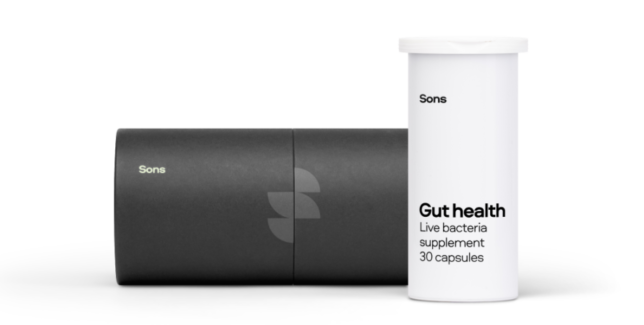When we talk about your ‘gut’, we are referring to your intestines – the long tube that takes waste from your stomach all the way out of your body. It is split into two main sections: the small intestine and large intestine. For decades of scientific and medical practice, the gut was considered as just a transport system for food and waste. However, fascinating new scientific evidence is beginning to show the essential role that your gut plays in your health and disease from belly to brain. So how does it do that?
Microbial Jungle
Your gut is home to the most densely populated microbial environment in your body, known as the gut microbiome. In fact, there are more bacterial cells in your body than there are human cells, most of which are in your gut. Most of these gut microbes are actually extremely important for your health. For example, the human body doesn’t have the enzymes necessary to digest fibre, however your gut microbes do have these important enzymes. When they digest fibre, they produce important molecules such as short chain fatty acids which help to keep your gut healthy.
Immunity
Roughly 70% of your immune cells are located in your gut. These immune cells continuously check everything travelling through your gut (microbes, food and anything else) and then decide whether it is safe or whether the immune system needs to fight it and remove it from the body.
Links with Other Organs
Your gut is physically and biochemically connected to almost every other organ in your body. Immune cells, nutrients and drugs in your gut can move around your body to other organs through a variety of routes. Intriguingly, gut health is intricately connected with brain health, through a biological network known as the gut-brain axis, which is made up of trillions of nerves connecting your brain to your gut. The gut can send signals to the brain and vice versa, therefore stress or anxiety may trigger gut symptoms, whilst poor gut health may trigger stress and other mental health symptoms.
With all of this new science demonstrating the critical role your gut plays in your overall health, it is important to know how to keep your gut healthy.
Probiotics
Probiotics are live microbes that have a specific health benefit. Unfortunately, many live bacterial supplements marketed as probiotics do not have good scientific evidence for specific health benefits in humans. Furthermore, just like all of the other microbes in your gut, each individual probiotic has different functions, therefore not all probiotics are the same. A handful of probiotics, including Sons Probiotic supplement, have proven scientific evidence for improving gut health by reducing symptoms of bloating, abdominal pain and gas. Certain probiotics also can improve gut health in other specific circumstances such as reducing antibiotic-associated diarrhoea and traveller’s diarrhoea. Therefore, for people with symptoms of poor gut health, a probiotic supplement for ~8 weeks may improve gut health.

Diversity Your Diet
We are all guilty of eating the same meals every week, however, this may not be the best approach for your gut. As your gut contains thousands of different types of microbes, they all require many different types of food to stay health. That is why diet diversity is the best way to improve gut health. Your gut thrives on plant-based foods, as these contain fibre necessary to help your gut microbes to grow. Plant-based foods are any foods that don’t come from animals, and can include fruits, vegetables, nuts, seeds, grains, beans, herbs and spices. Here are a few tips:
- Every time you do your food shopping, buy a new plant-based food that you wouldn’t usually buy.
- Write down every plant-based food that you eat every day and try to work your way up to 30 different types each week.
- Fill a large jar with a variety of chopped nuts and seeds. You can then easily sprinkle these on your cereal, salad or meals to add a fibre boost for your gut.
- If cooking with red meat (lasagne, Bolognese, shepherds pie, stew), replace half, or even all, of the meat with tinned lentils to add to your gut-friendly fibre intake.
- Swap out ‘white’ versions of rice, pasta and bread with ‘brown’ versions, which contain much more gut-friendly fibre.
There are so many more grains available than rice and pasta. Most supermarkets these days have a whole shelf full of various grains beside the rice including quinoa, bulgur wheat, pearl barley and many others. Remember, spices can count in your 30 a week. Many spices are great foods for your gut microbes. Just like your fruit/vegetables, diversity is key. Make a collection of spices and experiment with different types in different meals.
Exercise
Exercise can significantly improve symptoms of poor gut health for a number of reasons. Exercise can help the muscles that support normal gut function. Regular exercise may also help to improve symptoms of gas and bloating. In fact, a recent study found that 2 sessions of yoga per week for 12 weeks was as effective at improving gut health symptoms as the best-known dietary treatment. Many other forms of exercise can also improve gut health symptoms, reduce gut inflammation and change the composition of the gut microbiome.
Tackle Those Gut Feelings
Exciting science is beginning to show various lifestyle changes that can help support the gut brain axis. Fascinating scientific studies show that mindfulness and cognitive behavioural therapy can significantly improve gut health by reducing symptoms of irritable bowel syndrome, such as bloating and abdominal pain. Therefore, integrating mindfulness into your lifestyle may have real impacts on gut health. On the other hand, certain gut-directed lifestyle changes may even improve mental health outcomes. Prebiotics are certain foods that support the growth of beneficial gut microbes. Prebiotics are often dietary fibres found in certain fruit, vegetables and other plant-based foods. Interesting studies have found that eating particular prebiotics can reduce levels of cortisol, the hormone that makes your feel stressed. Particular probiotics may also have similar effects. A small number of probiotic, live bacterial supplements have scientific evidence for reducing stress and anxiety, if consumed over a few weeks. Therefore, focussing holistically at all aspects of gut and brain health may have benefits for overall health and wellbeing.
About the expert
Dr. Ruairi Robertson is a leading gut health specialist & TEDx speaker. He obtained a B.Sc in Human Nutrition from University College Dublin, Ireland. He subsequently conducted a Ph.D in University College Cork within APC Microbiome Ireland studying the interaction between maternal and early-life dietary lipids, the developing microbiome and metabolic health outcomes.

During this time, he was awarded a Fulbright Scholarship to conduct part of his PhD research in Harvard University Medical School and Massachusetts General Hospital. In 2017 he was awarded a Sir Henry Wellcome Postdoctoral Fellowship from the Wellcome Trust to conduct research within the Centre for Genomics and Child Health in the Blizard Institute, Queen Mary University of London and the University of British Columbia, Canada.

